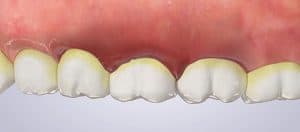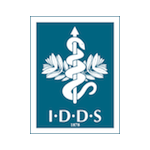When most people think about their oral health, they think about being cavity-free and having white, straight teeth. But one of the most important aspects of making sure your mouth is healthy is taking good care of the tissue around your teeth–your gums.
Why is gum health important?
If you don’t practice good oral hygiene like regular brushing and flossing, plaque can build up along the gum line. Over time, bacteria from that plaque can start to damage your gums and lead to gum disease, which can cause significant issues if left untreated.
How do I know if I might have gum disease?
Symptoms of early gum disease, also known as gingivitis, can include:
- Red, swollen gums
- Tenderness and discomfort, especially when flossing
- Bad breath that won’t go away
- Inflammation
- Bleeding
- Painful chewing
If left untreated, gum disease can progress to periodontitis, which infects the bone that supports your teeth and causes permanent damage to the tissue around the teeth. The gums can start to recede from the teeth, large spaces can form between teeth, and permanent teeth can even fall out.
What can I do to keep my gums healthy?
Fortunately, gum disease is very preventable and reversible if caught early, and there are some simple things you can add to your daily routine to keep your gums healthy. Some advice is more obvious: get regular dental cleanings, brush your teeth at least twice a day, and floss daily to remove plaque buildup between teeth.
One of the less obvious ways to improve your oral health is to stop smoking. According to the Centers for Disease Control and Prevention (CDC), smoking can cause severe gum disease, and smokers are twice as likely to get gum disease as non-smokers.
If you start to see symptoms of gum disease, schedule an appointment with your dentist right away. It’s important to catch gum disease early to be able to treat it effectively and reverse any damage.








